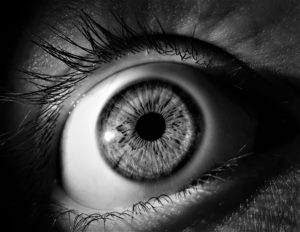Driver safety
Calls for greater focus on driver eyesight tests
Licence Bureau has backed a call to make regular eye tests mandatory, as data revealed 134 drivers a week have their driving licence revoked for not meeting the minimum eyesight requirements.
 The DVLA data, obtained by Direct Line Motor Insurance, highlighted that on average 7,000 people a year lose their licence due to failing eye-sight but Licence Bureau fears this may just be the tip of the iceberg with many more drivers with unsafe vision taking to the wheel daily.
The DVLA data, obtained by Direct Line Motor Insurance, highlighted that on average 7,000 people a year lose their licence due to failing eye-sight but Licence Bureau fears this may just be the tip of the iceberg with many more drivers with unsafe vision taking to the wheel daily.
Estimates suggest 1.1 million of UK drivers have never had their eyes tested, whilst 8.9 million admit to not having had their eyes tested in the last two years.
With business drivers making up *37% of all traffic on the UKs roads, potentially some 407,000 business drivers may never have had their eyes tested, whilst 3,293,000 may not have had their eyes tested in the last two years.
And with vision degrading with age and with more working drivers’ retirement ages increasing over time the worry is this problem is going to get worse if companies and their drivers are not forced to take more regular tests.
Driver licence validation services supplier, Licence Bureau, is strongly advising businesses and all fleets to make mandatory eye tests a standard element of their road safety compliance programmes. Already, as part of its driver audit, Licence Bureau confirms when a driver was last tested and flags-up those who have not been tested in the last two years. This is done via a simple survey in which a driver confirms their eyesight is satisfactory for the job.
“We welcome the research highlighting the challenges related to driver eyesight and have been a keen advocate of regular eyesight testing since our inception,” said Steve Pinchen, Sales Director at Licence Bureau.
“Although the evidence is damning, the good news is it could potentially help heighten the awareness around the risks associated with not having regular eye tests – the results of which could potentially mean losing a driving licence or worse, causing a road traffic accident.”
A previous study by Direct Line into the vision of drivers found that 16% of drivers had had an accident in the past two years, increasing to 67% for those who needed glasses or contact lenses but didn’t wear them.
Steve continued: “The statistics should ring alarm bells for any business operating a fleet because the risks are significant. It’s an area that is often taken as a ‘given’ in relation to driving but in-fact is quite the opposite and should be at the top of the list of priorities.”
Over three-quarters of optometrists (81%) support changing the law to make annual eye tests mandatory for drivers.
Currently the DVLA requires drivers to be able to read (with glasses or contact lenses, if necessary) a car number plate made after 1 September 2001 from 20 metres. Drivers must also have a visual acuity of at least decimal 0.5 (6/12) measured on the Snellen scale and have an adequate field of vision.
Less than a third of employers provide eye care for all, yet 74% have had their own eyes tested recently
 Specsavers Corporate Eyecare recently revealed the results of research into workplace eye care provision. The comprehensive survey was conducted among over 500 HR decision makers in both private and public businesses of all sizes across the UK. While an encouraging 61% of respondents confirmed they do provide workplace eye care, less than a third (32%) were found to provide it for all employees. The fuller figures are as follows:
Specsavers Corporate Eyecare recently revealed the results of research into workplace eye care provision. The comprehensive survey was conducted among over 500 HR decision makers in both private and public businesses of all sizes across the UK. While an encouraging 61% of respondents confirmed they do provide workplace eye care, less than a third (32%) were found to provide it for all employees. The fuller figures are as follows:
Do you provide workplace eye care?
- Yes, to all employees 32%;
- Yes, to screen users 13%;
- Yes, as an employee benefit 9%;
- Yes, to those with safety eyewear requirements 8%;
- Yes, to drivers 5%;
- No, 39%;
The net figures, therefore, show that 28% of employers provide eye care to some, but not all, employees. Providing eye care to screen users alone is the most common categorisation, followed by offering it as an employee benefit or for those with safety eyewear requirements. The least likely group to be offered eye care is those who drive for work purposes.
The survey asked employers about their own visits to the optician. Nearly three quarters (74%) have had their eyes tested within the last two years – the timeframe usually recommended by opticians, depending upon the individual case.
The full results are as follows:
When did you last have your own eyes tested? This can be part of your company’s eyecare or privately.
- In the last year 46%;
- 1-2 years ago 28%;
- 3-5 years 15%;
- 6-10 years 5%;
- Over 20 years 3%;
- Never 2%;
- Can’t remember 2%.
This means that a net quarter (25%) of employers have not had their eye tested in the last two years.
The wider benefits of eye tests to health and wellbeing are particularly important. Routine checks with an optician allow the opportunity for irregularities to be spotted. These may include signs of serious health conditions like glaucoma, diabetes, heart conditions and even risk of stroke.
Jim Lythgow, Director of Strategic Alliances at Specsavers Corporate Eyecare, commented: “The figures make interesting reading. It appears that employers do recognise the importance of eye care, both for themselves and for their employees. They do not, however, seem to be giving it the blanket approach that would benefit the maximum number of people. When considering the advantages that eye care can have to employees’ overall health and wellbeing, it can be a highly valued benefit when offered to all.”
The optician is the best person to decide the frequency of checks, but they are often only needed once every two years.
Jim Lythgow concluded: “To provide employees with an eye check once every two years is not onerous, particularly with eVouchers and online systems to manage the whole process. It is also not a high-cost option. It is often the case that it takes more time and effort to exclude a few people from this low-cost provision than to let everyone benefit.”
*circa 14 million business drivers on UK’s roads (made up of circa one million company cars and 13 million grey fleet) Vs circa 38 million vehicles (total) on UK roads.
Calls for greater focus on driver eyesight tests
Licence Bureau has backed a call to make regular eye tests mandatory, as data revealed 134 drivers a week have their driving licence revoked for not meeting the minimum eyesight requirements.
Safety & Health Practitioner
SHP - Health and Safety News, Legislation, PPE, CPD and Resources Related Topics
Horticulture company fined after lorry driver suffers life changing injuries
Top three areas to improve driver safety revealed in study
Driven to distraction? RoSPA’s Dr Karen McDonnell on driver safety

 The DVLA data, obtained by Direct Line Motor Insurance, highlighted that on average 7,000 people a year lose their licence due to failing eye-sight but Licence Bureau fears this may just be the tip of the iceberg with many more drivers with unsafe vision taking to the wheel daily.
The DVLA data, obtained by Direct Line Motor Insurance, highlighted that on average 7,000 people a year lose their licence due to failing eye-sight but Licence Bureau fears this may just be the tip of the iceberg with many more drivers with unsafe vision taking to the wheel daily.